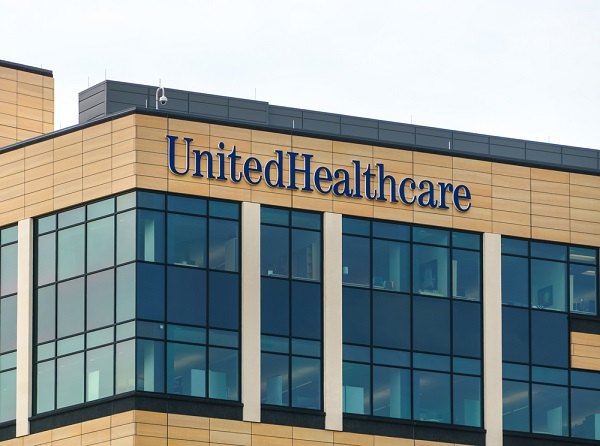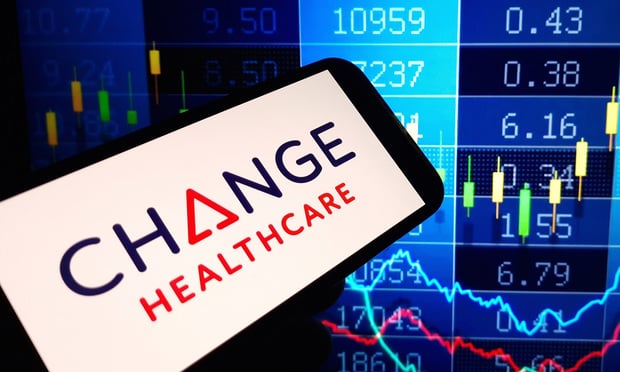 (Photo: Shutterstock)
(Photo: Shutterstock)
UnitedHealth Group Inc.'s second-quarter results were lifted by lower costs of care that portend well for other health insurers but may be a warning sign for hospital companies.
Medical-loss ratio, a closely watched measure of the percentage of premium income spent on patient care, came in at 81.5%, down from 82.8% a year ago and roughly a percentage point below the average of analysts' estimates compiled by Bloomberg. A lower number means the company has more money for administrative costs and profit.
That may mean good news for other insurers like Humana Inc. and Cigna Corp. UnitedHealth's results are positive for other managed care companies, "reinforcing expectations for continued favorable utilization trends and beats & raises this quarter," Evercore ISI's Michael Newshel wrote in a research note Friday.
Complete your profile to continue reading and get FREE access to BenefitsPRO, part of your ALM digital membership.
Your access to unlimited BenefitsPRO content isn’t changing.
Once you are an ALM digital member, you’ll receive:
- Critical BenefitsPRO information including cutting edge post-reform success strategies, access to educational webcasts and videos, resources from industry leaders, and informative Newsletters.
- Exclusive discounts on ALM, BenefitsPRO magazine and BenefitsPRO.com events
- Access to other award-winning ALM websites including ThinkAdvisor.com and Law.com
Already have an account? Sign In
© 2024 ALM Global, LLC, All Rights Reserved. Request academic re-use from www.copyright.com. All other uses, submit a request to [email protected]. For more information visit Asset & Logo Licensing.
Dig Deeper
Trending Stories
Events
- ConsultingConsulting Leaders in Technology 2024May 16, 2024 - DallasConsulting Magazine recognizes leaders in technology across three categories Leadership, Client Service and Innovation.More Information
- ConsultingConsulting Top Consultants 2024June 27, 2024 - New YorkConsulting Magazine identifies consultants that have the biggest impact on their clients, firms and the profession.More Information
- Real EstateGlobeSt. Women of Influence (WOI) 2024July 22, 2024 - Lake TahoeGlobeSt. Women of Influence Conference celebrates the women who drive the commercial real estate industry forward.More Information
Recommended Stories
Big Pharma layoffs continue, as Bristol-Myers Squibb cuts 2,200 jobs, $1.5B in costs
By Alan Goforth | May 10, 2024
As Eli Lilly and Novo Nordisk are scrambling to meet demand for their popular weight-loss drugs, Bristol-Myers Squibb is the latest drugmaker to wield the restructuring ax, with plans to cut $1.5 billion in costs by the end of 2025.
New FTC rule requires digital health apps to notify users of data breaches
By Alan Goforth | May 10, 2024
The FTC has issued a revised Health Breach Notification Rule, aimed at protecting consumer medical information on digital health and wellness apps, such as GoodRx and Cerebral, by requiring them to notify consumers of a breach.
Change Healthcare, Kaiser Permanente cyberattacks: A wake-up call for health care
By Rob Kantrowitz, Sunil Shenoi, Micah Desaire and Xiaorui Yang | May 10, 2024
Many health care companies rely on third parties to provide essential digital tools – telehealth platforms, secured file transfer solutions and advertising tools – and these services are prime targets for cyberattacks.
Resource Center

Article
Sponsored by ArmadaCare
Increase Your Value as An Advisor
Learn how Ultimate Health can be used as a powerful tool to open doors, stand out from the competition and solve clients’ top HR challenges related to coverage, retention, recruitment and compensation.

Guide
Sponsored by Nonstop Administration and Insurance Services, Inc.
Got a New Prospect? Change Your Next Conversation
Prioritizing health equity can transform your sales strategy and secure long-term business success. This guide helps you lead thoughtful conversations by aligning with employers' values.

Playbook
Sponsored by Trustmark Voluntary Benefits
Your Long-Term Care Legislation Playbook
Long-term care legislation can cause confusion for you and your clients as it evolves state-by-state. Help your clients navigate the complexities with this comprehensive playbook.





